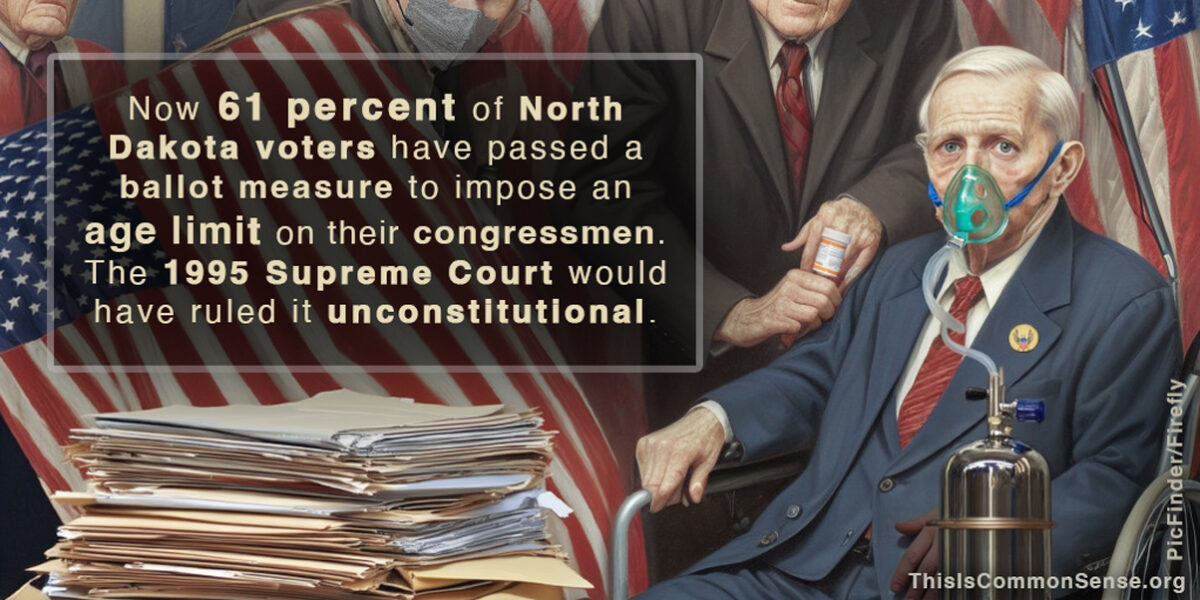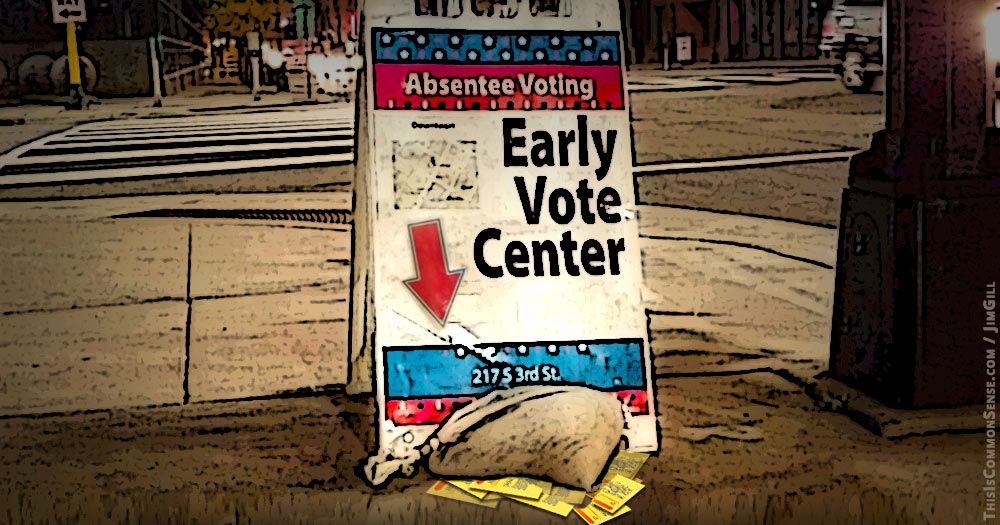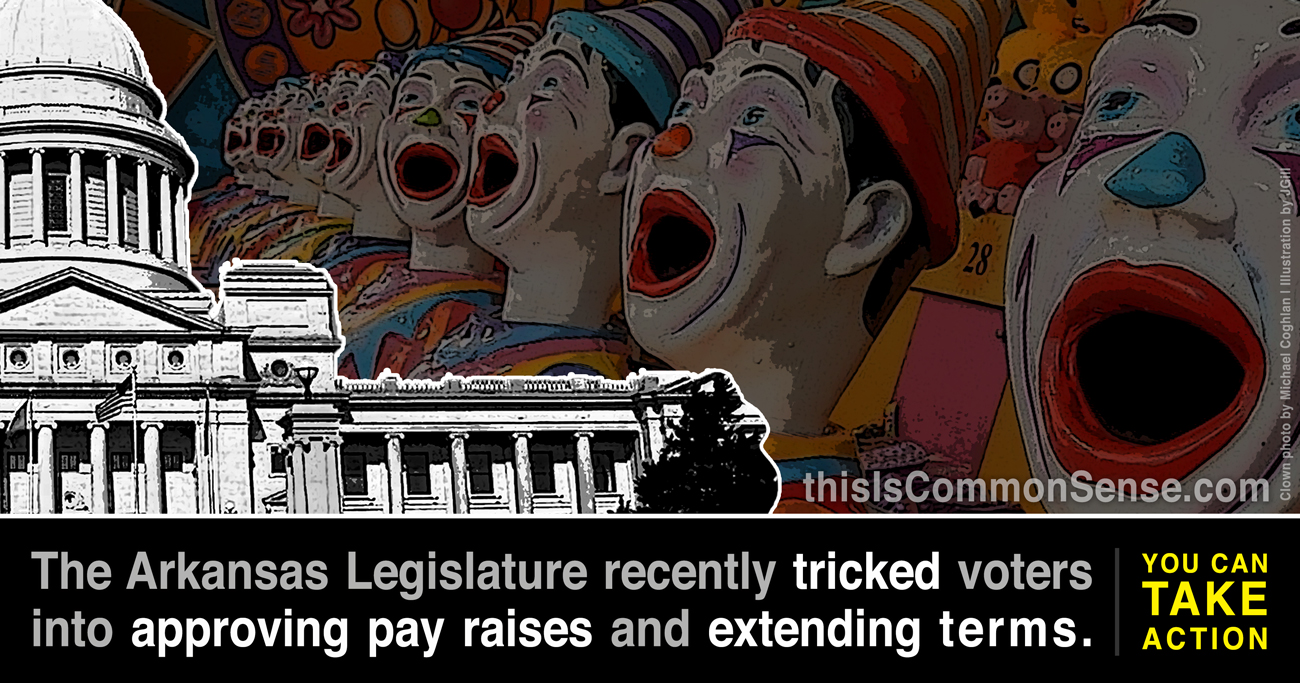Will the Supreme Court let states impose limits on the representatives and senators they send to Washington, D.C.?
Thanks to events in North Dakota, there’s a good chance this question is about to asked again.
And get a different answer.
The first time was thirty years ago. The case: U.S. Term Limits v. Thornton.
In May 1995, the U.S. Supreme Court held, in a 5 – 4 decision, that states cannot impose restrictions like term limits on their congressional delegations.
But: “Nothing in the Constitution deprives the people of each State of the power to prescribe eligibility requirements for the candidates who seek to represent them in Congress,” observed Justice Clarence Thomas in his dissent. “And where the Constitution is silent, it raises no bar to action by the States or the people.”
Now 61 percent of North Dakota voters have passed a ballot measure to impose an age limit on their congressmen. The 1995 Supreme Court would have ruled it unconstitutional. The only justice serving on the high court then who is still there is Thomas.
Everybody thinks that North Dakota’s outlawing of ancient candidates will be challenged in court. In a June 17 podcast for U.S. Term Limits, its president, Philip Blumel, says that USTL would welcome such a challenge.
“Surely, U.S. Term Limits versus Thornton would be the basis” for the challenge and would thus “provide an opportunity for the U.S. Supreme Court to revisit the issue.”
Moreover, a case brought in federal court won’t necessarily take years to decide, because “sometimes the [Supreme Court] expedites election-related cases.”
Fingers crossed, everybody.
This is Common Sense. I’m Paul Jacob.
NOTE: Paul Jacob is a former president of U.S. Term Limits and continues to serve on its board of directors. Paul is currently the president of Liberty Initiative Fund, which made significant contributions to North Dakota’s age limits initiative.
Illustration created with PicFinder and Firefly
See all recent commentary
(simplified and organized)
See recent popular posts














